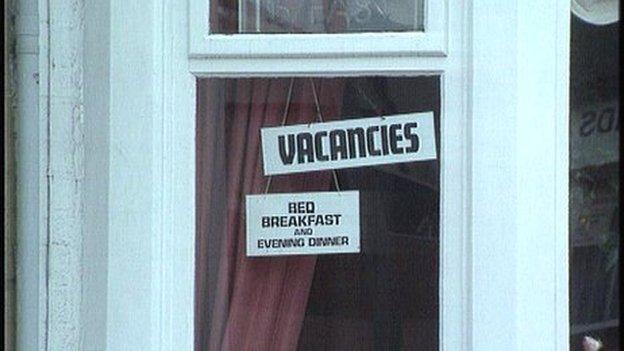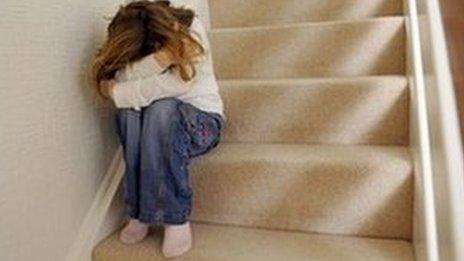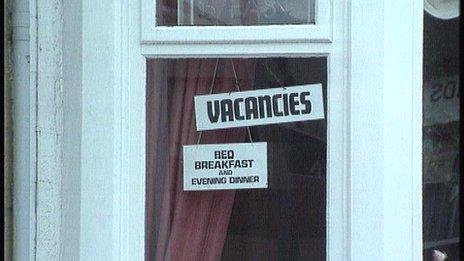Councils 'turning their backs on care leavers'
- Published

About 40% of care leavers are not in education, employment or training
England's local authorities are "turning their backs" on young people leaving their care, the chair of the Commons Public Accounts Committee says.
Meg Hillier says just eight out of 151 local councils know where all their care leavers are living, despite a duty to stay in touch with them.
Two-thirds of care leavers' services have been rated inadequate or requiring improvement by Ofsted, she adds.
Town hall bosses say the care system is becoming an increasing challenge.
The Local Government Association says this is due to the growing number of youngsters entering the care system and increasingly stretched budgets.
Emotional health'
The National Audit Office report: Care Leavers' Transition to Adulthood, scrutinised by the committee, says the number of young people leaving care has grown significantly, almost doubling from 6,900 in 2003-04 to 10,310 a decade later.
The report says young people in care have often had difficult lives but have to start living independently much earlier than their peers.
Some 62% of children in care are there because of abuse or neglect, which can have a lasting impact on their mental and emotional health.
The report says the government aims to ensure that care leavers receive the same level of care and support as a child does from a reasonable parent.
This would include help in finding a job or setting up home, and general support for them to move successfully into adulthood.
But high staff turnover and heavy workloads mean sometimes care leavers are not getting the support to which they are entitled, it says
Personal history
Mrs Hillier said: "It seems local authorities are turning their back on young people leaving their care, when two-thirds of local authority services for care leavers have been rated 'inadequate' or 'requiring improvement' since November 2013.
"Care leavers are in dire need of effective care and support, but this report finds care leavers who are not involved in their care-leaving plans and who do not know what support they are entitled to."
The report also finds local authorities have no information on 17% of their 19- to 21-year-old care leavers, even though they are often vulnerable.
Care leavers often face difficulties in accessing their own health records, identification documents and personal history, it adds.
It also highlights that there are no official statistics on some aspects of care leavers' lives, such as whether they have timely access to health services and whether they feel they left care at the right time.

Some care leavers are accommodated in B&Bs
And it does not collect data on where care leavers work or study, or where they live and whether it is suitable, after the age of 21.
Amyas Morse, head of the NAO, said: "The government has made a commitment to improve the support for these young people, but the outcomes for many have been deteriorating over the last seven years."
An LGA spokesman said: "Councils do what they can to support all care leavers.
"We desperately need to see the whole system properly funded and joined-up to ensure children and young people receive the support when they need it.
"It is vitally important that government departments work better together to continue the work to tackle our ineffective and fragmented mental health system."
A DfE official said it was committed to improving the lives of care leavers and helping them make a successful transition to adulthood.
"That's why we have introduced a comprehensive series of reforms to achieve this - including changing the law so young people can live with their foster family after they turn 18 and giving every care leaver a personal adviser.
"We are also investing over £100m through the Innovation Programme to support vulnerable children, and funding programmes to get more care leavers into apprenticeships."
Javed Khan, chief executive of Barnardo's which wants support for care leavers extended until age 25, said: "It is disappointing that the system put in place to support care leavers continues to have such poor outcomes for young people."
- Published7 March 2014

- Published14 October 2014

- Published17 July 2014
